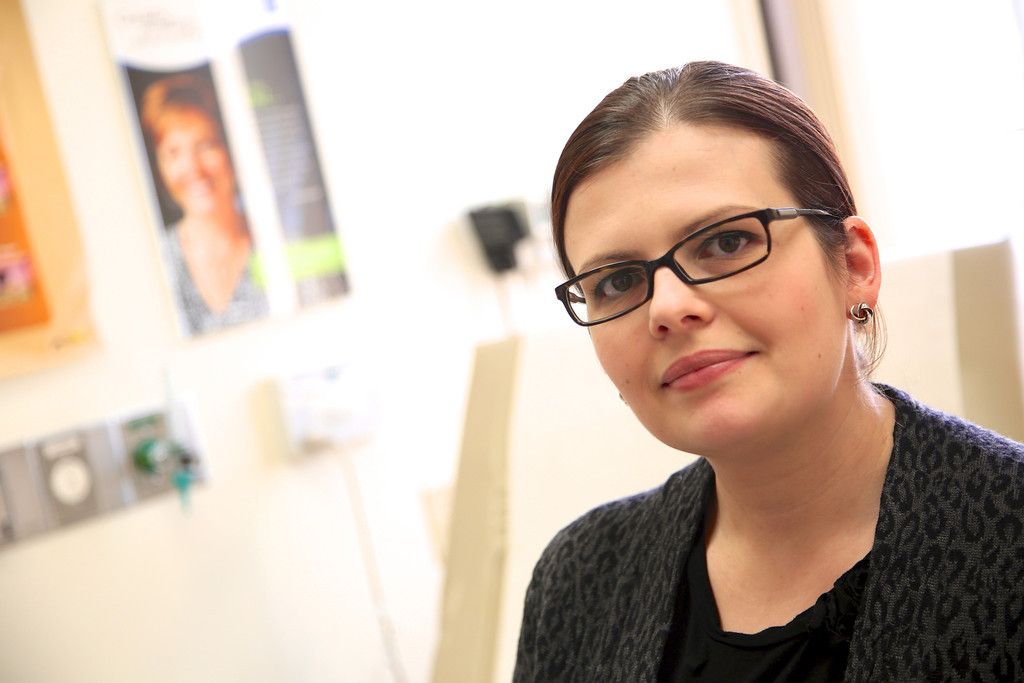Read an interview with Dr. Valerie Francescutti (formerly of Roswell Park), Surgical Oncologist in the Soft Tissue Sarcoma/Melanoma Division at Roswell Park Comprehensive Cancer Center (Roswell Park), about the benefits of this advanced procedure and her research into why few patients are referred for the possibly life-extending treatment.
Q: What treatment options are available for patients that have peritoneal metastases or carcinomatosis?
A: In the past, carcinomatosis was treated with systemic chemotherapy, with surgery for palliative purposes. More recently, cytoreduction, or surgical removal of all visible tumor nodules in the abdominal cavity, followed by hyperthermic intraperitoneal chemotherapy (HIPEC), has become an option. This procedure may be beneficial as part of the management of patients with cancers originating in the appendix such as pseudomyxoma peritoneii [also known as disseminated peritoneal adenomucinosis (DPAM), or peritoneal mucinous adenocarcinoma (PMCA)], gastrointestinal primary cancers such as colorectal cancer, and peritoneal mesothelioma. Both at Roswell Park and elsewhere, cytoreduction/HIPEC has had a meaningful impact on the survival rates of these patients. The increase in clinical interest and ongoing research has made patients and families more aware of this as a treatment option.
Q: Since centers that have the ability to provide this treatment have seen such a positive response, why wouldn’t all patients with carcinomatosis be referred for this treatment?
A: Roswell Park has a well-established cytoreduction/HIPEC program, with three surgeons (Drs. John Kane, Joseph Skitzki and Valerie Francescutti) providing consultation and surgical procedures. However, this procedure is not available at every center, given the required infrastructure, and expertise in surgical management and post-operative care. Roswell Park is the only center in Western New York offering cytoreduction/HIPEC. Also, not all patients are appropriate candidates for the procedure. We spend a great deal of time ensuring we have reviewed all of the patient’s information at a first visit and have a thorough discussion with the patient regarding risks and benefits.
Q: Do you have any ongoing research regarding the cytoreduction/HIPEC procedure at Roswell Park?
A: My clinical research in cytoreduction/HIPEC is a comprehensive assessment of the possible barriers to referral for the procedure. Only a small proportion of patients that may be candidates for the procedure eventually receive it. The question I am interested in answering is what factors affect the referral process—both positively and negatively. Although a number of possible issues come to mind—including lack of awareness of a program that offers the procedure; the thought that the procedure may be too complicated or that the chance of a good outcome for patients is not supported by sound published literature; or difficulties with arranging consultation—a true rigorous study of these issues has not been done.
Q: How will your research address these possible issues?
A: My initial research in this area will include the identification of possible issues from in-depth interviews with medical oncologists and surgeons that manage these patients. With the themes from this portion of the research, we will be creating a survey that will be designed to help us understand the feelings and attitudes of all possible referring physicians in regards to cytoreduction/HIPEC in Western New York. My surgical colleagues and I hope to be available to provide information to any physician wishing to refer a patient for this procedure, to discuss challenging cases and facilitate referral for patients that may benefit.
